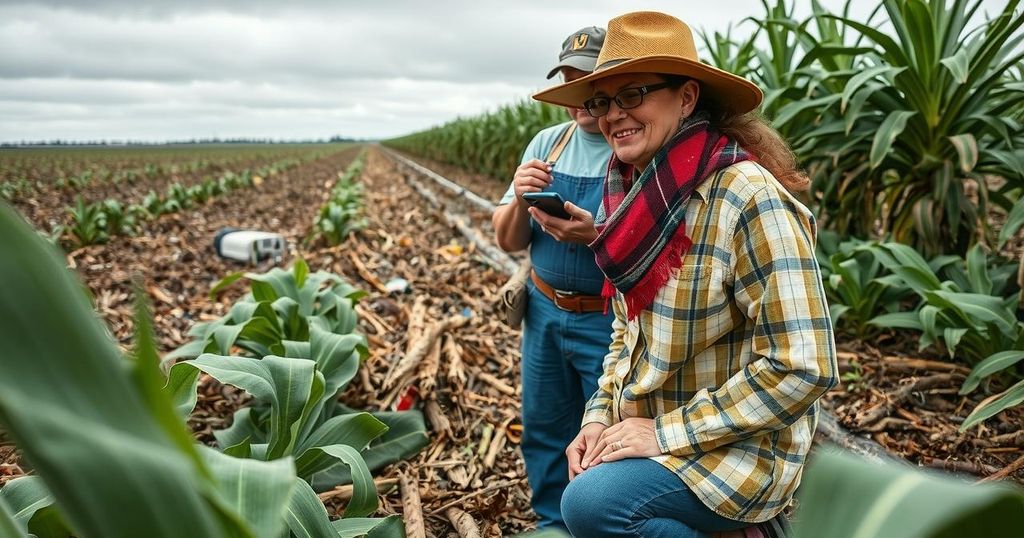Southern Farmers Struggle with Hurricane Helene’s Lasting Impact
Hurricane Helene caused widespread devastation to Southern agriculture, leading to over $10 billion in damages. Farmers like Chris Hopkins continue to recover, facing losses of crops and equipment. While state aid efforts are underway, challenges remain for those affected.
Farmers in Georgia continue to face the consequences of Hurricane Helene, which left behind twisted equipment and destroyed crops over two months after its passage. Chris Hopkins, a local farmer, described the emotional toll of the disaster, noting that he lost 50% of his cotton crop from an estimated yield of 1,400 acres. The storm, which made landfall on September 26 as a Category 4 hurricane, has resulted in a devastating loss exceeding $10 billion across the southern states, impacting various agricultural sectors including cotton, timber, and poultry.
Georgia’s losses total at least $5.5 billion, while North Carolina faced $3.1 billion in damages due to severe rainfall and flooding. Other states like Virginia, South Carolina, and Florida report additional losses amounting to hundreds of millions. The extensive damage includes uprooted trees, ruined crops, and destroyed infrastructure, forcing farmers to grapple with both immediate repairs and long-term impacts on their livelihoods.
Georgia’s government has stepped in, diverting funds to aid farmers affected by the disaster. However, state laws prevent direct assistance to individuals or businesses, complicating recovery efforts. In Congress, a bill has been passed which allocates $21 billion in disaster aid for farmers nationwide. For many, such aid is critical as they begin the arduous process of rebuilding and recovering from the storm’s effects.
Hurricane Helene caused extensive destruction across the southern United States after making landfall in Florida as a major hurricane. The storm’s impact was felt across an extensive area, affecting farmers, timber owners, and agribusinesses in multiple states, including Georgia, North Carolina, Virginia, South Carolina, and Florida. The storm’s aftermath has highlighted the vulnerabilities in agricultural practices and the need for timely disaster relief and policy responses to aid recovery efforts for affected farmers. This event underscores the fragility of crop yields and the significant economic implications of natural disasters on agricultural communities.
In summary, Hurricane Helene has significantly impacted the agricultural landscape of the South, leaving farmers grappling with extensive losses amid the challenging task of recovery. The comprehensive damage, costing upwards of $10 billion, reflects the need for immediate and effective relief measures. As farmers begin to navigate the emotional and financial repercussions of the hurricane, ongoing support from state and federal entities will be essential for their successful rebuilding and sustainability in the future.
Original Source: brookingsregister.com




Post Comment